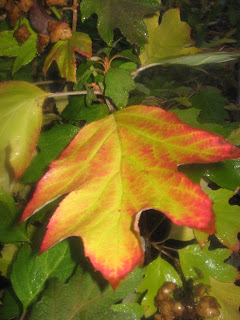Frosty windows and snow drifts indicate the winter season is near. It is an ideal time for wrapping up in a quilt, grabbing a cup of hot chocolate, and settling in a soft chair with a favorite pen, journal, and some writing books for inspiration.
After being motivated by visiting writers and having time to write each day during the Summer Institute, Writing Project fellows have good intentions of revising that creative nonfiction piece, polishing another favorite poem, or modeling their own revision process for students. Other stuff gets in the way. Personal writing moves down the list of priorities. For the winter collection I have compiled a short list of useful books on writing. This group may help you keep going when you have run out of inspiration, energy, or creativity. Hopefully this collection may also provide fresh ideas to use with your own student writers.
Steering the Craft, Exercises and Discussions on Story Writing for the Lone Navigator or the Mutinous Crew by Ursula K. Le Guin. I am drawn in already by the great title! This Portland, Oregon writer has organized her book by topics surrounding the craft of writing, and then includes writing exercises, examples from known literature, and further reading. She begins the book with a chapter entitled “The Sound of Your Writing” using a little poem by Gertrude Stein called “Susie Asado” as a model for sound. Other chapters include “Repetition”, “Point of View and Voice”, and “Indirect Narration”. This book is helpful particularly if there is one specific area of writing you want to focus on without reading a whole volume.
Writing Toward Home, Tales and Lessons to Find Your Way by Georgia Heard. In each chapter of this book the author gives a narration on a topic, following up with a writing prompt to inspire the writer. She takes experiences and lessons from her life and guides the writer to put those life experiences into their own words. “Let Writing Lead the Way” is a favorite chapter because she admits failures in her own writing and ends with questions we can ask ourselves as writers. Home and autobiography are themes throughout the book helping the writer find an authentic voice and well-chosen words.
The Writer’s Notebook, Unlocking the Writer Within You by Ralph Fletcher is a compact book that carries a big punch. He introduces the Writer’s Notebook idea then provides thoughts on notebooks from authors including Paul Fleischman and Naomi Shihab Nye. His chapter called “Lists” is full of practical writing ideas for any situation. His last chapter “Writing About Writing” is a perfect ending to this book. He answers questions and shares others’ thoughts on writing. “Your notebook should fit you the way a favorite pair of jeans fits your body. Let it reflect who you are.” If you are short on time and want some practical, yet inspiring ideas, this is the book for you.
The Sound of Paper, Starting From Scratch by Julia Cameron. Cameron is well known for her book The Artist’s Way, but when it comes to setting up rituals for the writing life, this book is a keeper. She introduces three writing tools to use in “your backpack” throughout the book. They are morning pages, artist dates, and walks. She then introduces us to a series of essays about the creative life, each coming to a close with an idea to explore. One favorite of mine is called “Keeping Our Footing” and the exercise has the writer focus on activities that bring relief and grounding. Yes, the list includes laundry, making fudge, and mending!



